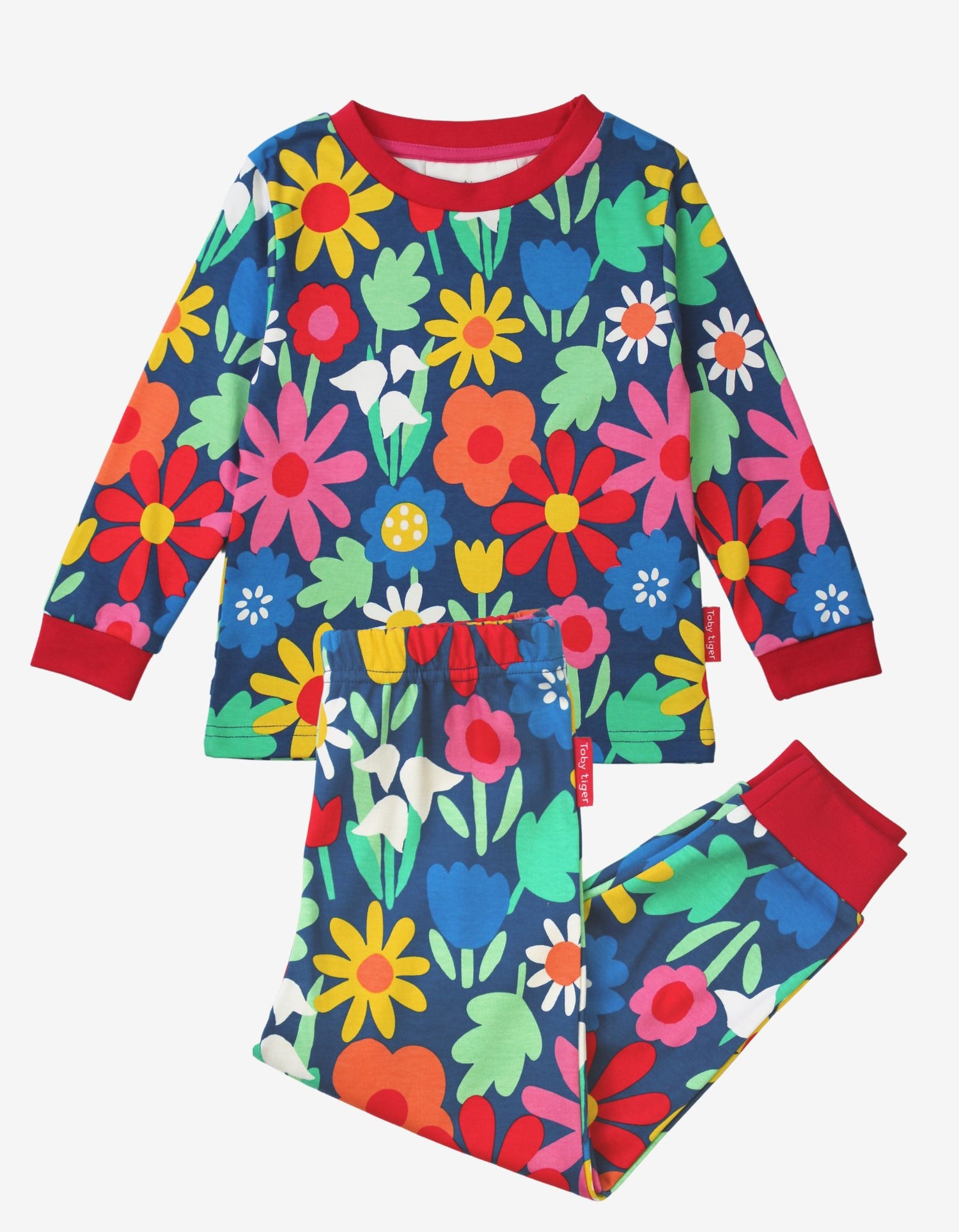With 1 in 5 babies and children in the UK affected by eczema, many of you will be all-too familiar with it and have your own tried-and-tested ways of helping to treat it.
It goes without saying that you’ll try anything you can and, as well as prescribed emollients and steroids, many mums and dads see a real improvement when their kids wear organic clothes. There’s a heap of anecdotal evidence from parents and lovely Toby Tiger customers who tell us our organic cotton clothing is one way to help eczema-prone skin. Mums and dads know what works for their child – and it seems organic clothing is a step in the right direction!
Why can organic clothes help eczema?
Organic cotton is naturally super soft. The harsh chemicals and dyes used to process conventional cotton breaks down fibres, which damages the fabric. We don’t use any chemical nasties so our cotton is pure, undamaged and softer as a result – making it super kind to skin. Our cool organic cotton PJs are a particular hit, keeping little ones cool and comfy during the night when the dreaded itching can often get worse. Not only that, our lovely soft seams and comfy waistbands put less pressure on precious, delicate skin. Win, win!
Mum Charlotte Squire agrees. Her daughter, Eden, who's wearing our parrot dungarees above, finds organic clothing like ours helps her eczema. "Clothing makes such a difference - especially at night. It's best to have something their skin can breathe in that's also super soft for a better night's sleep all round. Organic cotton is always the best choice, as it keeps sweat at bay and keeps them cool."
Top tips to help your child’s eczema
Of course, you’ll know what works best, but here are some general things to think about at home:
Go natural! Soft, loose-fitting organic cotton clothes can help eczema. Avoid woollen clothes which can prickle skin, and any synthetic fabrics (think polyester and nylon), which can make skin overheat. Some GPs also prescribe
What’s in the wash? Use non-bio detergents to wash clothes and skip the fabric softener – the brand that works for you may be down to trial and error, but gentle non-perfumed products seem to work best.
Keep bathtime fun: How often you bathe your little one is up to you – some people feel every day helps, while other parents find every other day works better. Whatever you decide, water dries out the skin, so you probably need to add an emollient – but watch the bath isn’t too slippy. And, it goes without saying to avoid harsh soaps and bubble bath – have a few fun toys to hand and they won’t miss the bubbles! "We give Eden a bath or a light wash before bed, and during a flare-up, apply cream before covering her hands and feet with socks," says Charlotte. "This tends to put slight pressure on the skin, relieve the itching and keeps the cream sealed in."
Make time for a mini mani: Keep little fingernails trimmed to avoid scratching and making irritated skin worse.
Watch your thermostat: Heat or changes in temperature can exacerbate eczema, so try to keep indoor temperatures consistent and not too hot. Watch the weather too, says Charlotte: "I've noticed that extreme weather changes cause a lot more flare-ups."
Keep it clean: No matter how clean your house is, pesky invisible allergens can affect eczema. Keep house dust mites, pollen or pet dander in check with protective covers on bedding and run the Hoover around as often as you can.
Spot patterns: Take note of any flare-ups to see if you can link it to anything – sometimes food allergies or intolerances can aggravate eczema and you could see a pattern. "I've also noticed that Eden's eczema flares up with dairy and egg, so we always try to avoid them," adds Charlotte.
Share your tips
All in all, every little helps to keep your little one as comfortable as possible. We know we haven’t covered everything here, so please share your tips with us over on Facebook – we’d love to hear what works for you!


